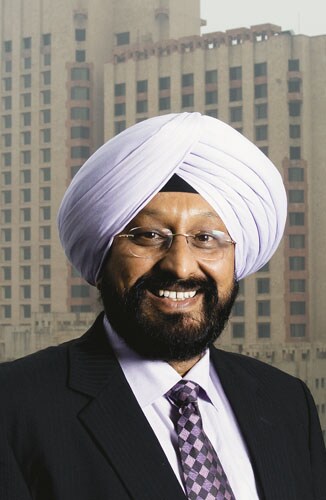
Growing In A Bad Year
Satnam Singh, the MD of PFC, India's nodal finance body for the power sector, tells Forbes India why power will continue to grow in spite of slowdowns
Satnam Singh
Age: 51
Career: Chairman cum managing director, power Finance Corporation since August 2008. 30 years of varied experience in power and financial sectors.
Education: MBA in Finance & Marketing from UBS, Chandigarh. B. Com, Punjab University
Interests: Reading and playing the tabla.(is a graduate in Inian classical music), and yoga.
You seem unaffected by the economic slowdown?
You might find this funny. In the pre-meltdown days, our profits grew at 30 percent year on year. After the meltdown, our profits have begun growing at 60 percent. The same is true in respect of asset growth which has jumped from 15 percent to 30 percent during this period.
Is it entirely because of power ministry wants you to lend aggressively?
Not entirely because of the power ministry’s emphasis on power. Do remember that even in the year ending March 2008, our revenues grew by 28 percent, though in the following year they grew by 30 percent. It is because we are the apex financing body for the power sector. It is also because we ensure that we sanction loans only after studying both the promoter and the project quite thoroughly. That is why our net profits grew by 22 percent even in 2007-08 over the previous year, though the following year, this growth jumped to 64 percent.
What do you look for most in any project?
The promoter and his track record. The rest is only a manner of presentation of numbers.
How many power projects have failed during the time PFC has been in business?
Of the 350 odd projects we have financed, only one has failed, and that is because of the management, not because of the project. We have one of the lowest NPAs (non-performing assets) in the country – just 0.02 percent. And the annual contribution per employee of PFC comes to around Rs. 6 crore.
Are you saying that there is little risk in the power sector business?
The only risk we perceive is at the construction stage. If the promoter is good, and the construction phase is managed well, there is just no risk. The demand is huge, and the agreements protect investors adequately.
If business is that good, why is the gap between sanctions and disbursals becoming larger? For instance, in the Eighth Plan, the amounts sanctioned were Rs. 6,502 crore, and disbursals Rs. 5,077 crore. By the Tenth Plan, it became Rs. 84,135 crore and Rs. 51,460 crore respectively. However, in this plan (Eleventh) till March 2009, Sanctions stand at Rs. 150,000 crore while disbursements only Rs. 43,783 crore.
I am aware of that. This is because the rate at which the projects are being planned has accelerated. This is evident from the number of promoters who have come forward with their investment proposals. We examine the project and give an in-principle approval subject to the promoters meeting several conditions. Meeting those conditions takes time, and those who do meet them get their loans disbursed. Cumulatively, we have sanctioned loans worth Rs. 233,715 crore till March 2009, and have disbursed Rs. 113,120 crore.
People describe you as an unconventional manager. Would you care to elaborate on this?
The one thing I do not believe in is the practice of setting benchmarks. Set the benchmark too high and it frightens people and discourages them even before they actually begin work. Set it too low, and the benchmark becomes the limit.
Instead, we encourage people to achieve whatever they can. I ask people to give me a Daily Achievement Report, which some people have begun calling the DAR report [in Hindi, the most commonly used language in India, ‘DAR’ translates into ‘fear’]. I do not want to hear any excuses, or justifications. Just tell me what you have achieved. You can say you have not achieved anything one, day, for two days, for three days. But after that it becomes an embarrassment for the person, and he will try and achieve something. I don’t even believe in monitoring people. If you have taken a person you trust, why do you then need to monitor him? Let him give his own assessment report. That has unleashed energies in this team that few thought were possible earlier.
(This story appears in the 30 November, -0001 issue of Forbes India. To visit our Archives, click here.)





